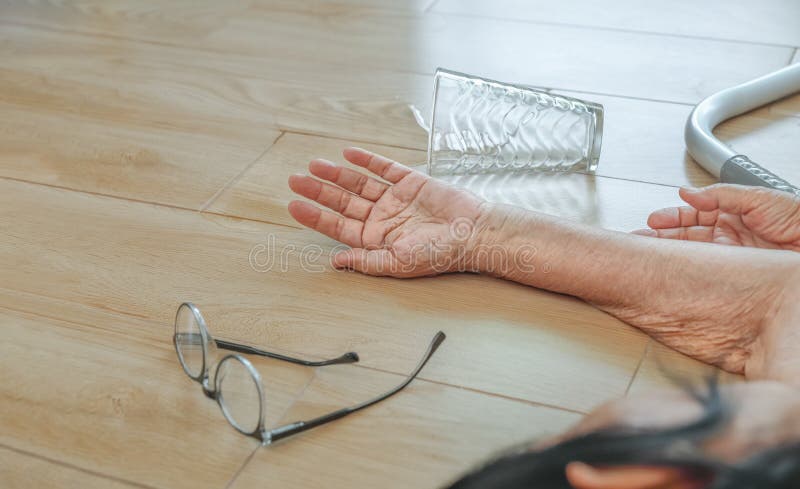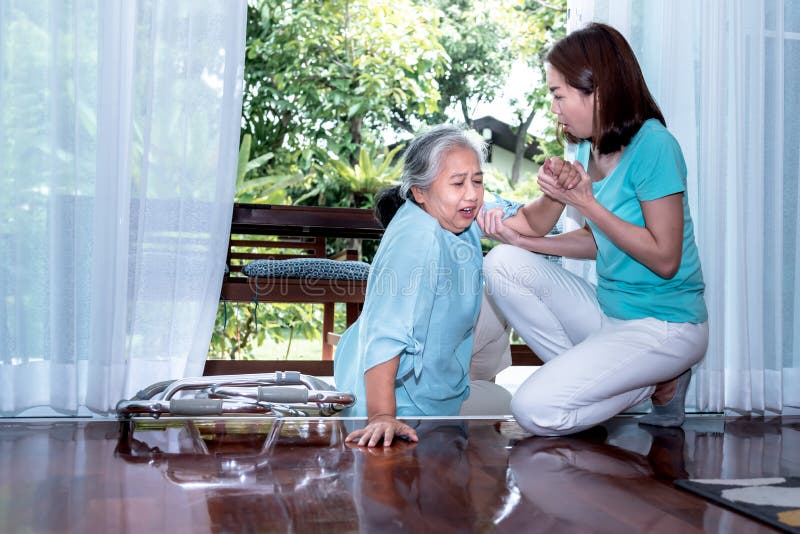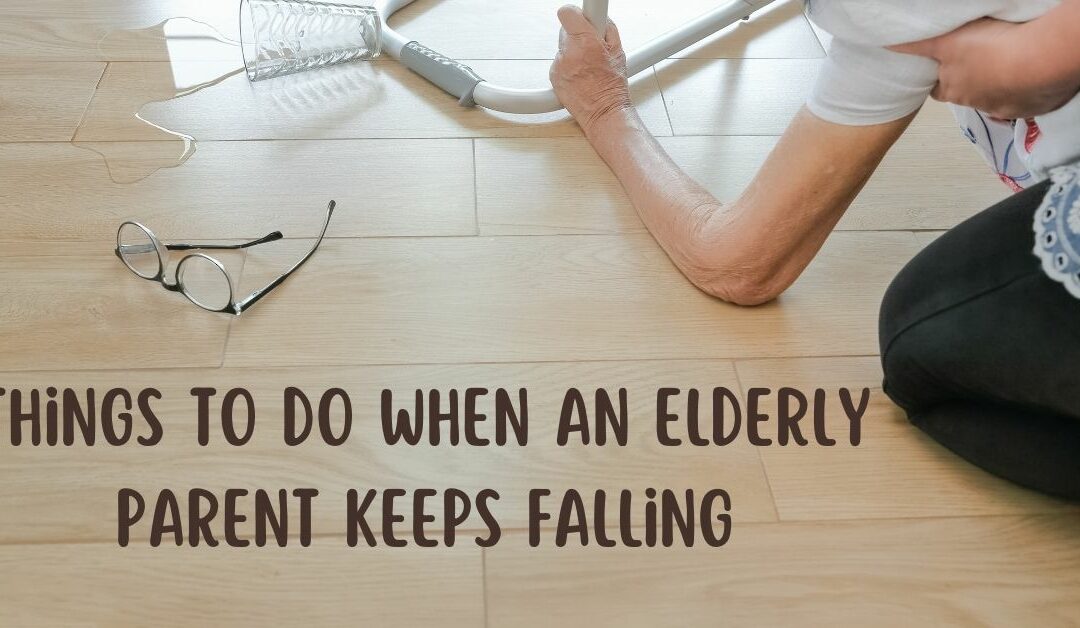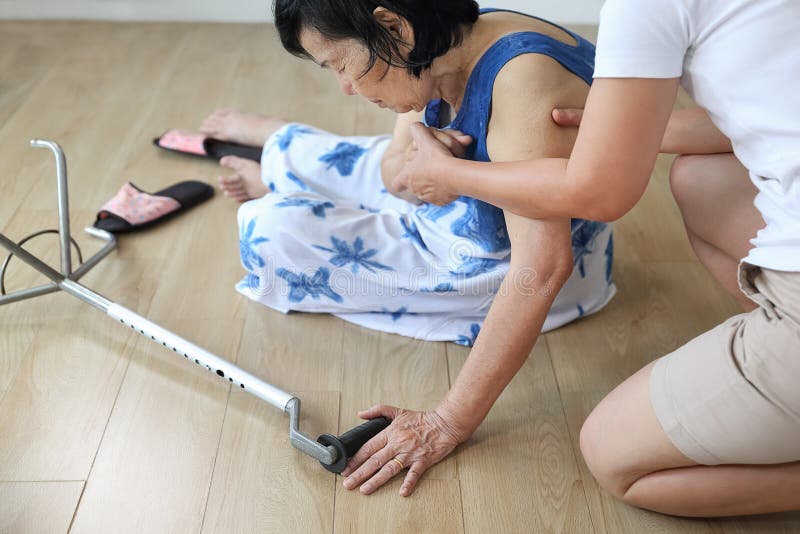Contents
Many Senior Parents Lose Their Balance Due To Old Age
An old person experiences a lot of changes in their mind and body. It is not strange why an elderly parent keeps falling. The functioning of old people gets affected because of them. So it is quite understandable why they also lose their balance. Parts of their body don’t work as well as they used to. They can no longer perform, like how they did as young and middle-aged adults or parents years ago.
But there are common strategies to do something about this issue. A senior or elderly parent can seek help. Young and able people can volunteer to aid aged folks too. Some tools make ambulation possible and easy for retirees. Certain physicians specialize in geriatric care too. So there are many options for old people who keep falling to live longer and better.
Elderly Folks Fall Likely Because Of These
Knowing these may allow you to know what to do when elderly fall issues happen. Old people don’t fall at random and only do so because of the problems that they experience. These are the possible reasons why they fall from a height or collapse where they stand.
- Weakened vision and hearing
- Poor physical fitness and nutrition
- Presence of diseases
- Hazards in the surroundings
- Use of medications or having undergone surgery
- Sticking to the old ways of doing things
Weakened Vision and Hearing
Some old folks suffer from specific conditions due to natural aging. Examples of these are glaucoma, cataract, and retina problems. Hearing issues may also surface. The eyes and ears work together to keep the reflexes for the balance of a person intact. When either or both of these have problems, an individual may have trouble with his or her stability. This means having difficulties standing, walking, or even moving around.
Poor Physical Fitness and Nutrition
Many old folks feel challenged when performing daily tasks due to their age. Their bodies have turned weak because they lack their previous strength and speed. Drinking and eating have become a problem too because of it. They are at risk of falling because of their vulnerability due to body weaknesses.
Presence Of Disease
Chronic conditions are often the cause of falls in old people. Some examples of these are heart ailments, Parkinson’s disease, and arthritis. These make it difficult or impossible for seniors to stand on their feet and ambulate for too long. It’s because these conditions cause breathlessness, tremors, and pains.
Hazard in Surroundings
So many things could cause falls in the elderly to happen. Old people can step, trip, and slip on the surface of rugs, clutter, pets, and cords. Poor lighting, steep steps, and furniture problems may also result in balance problems. Even a cold and warm environment can cause changes to surfaces and cause a person to fall over.
Use of Medications or Having Undergone Surgery
Some drugs affect consciousness, thought process, balance, and muscle strength. When elderly people have these, their ability to stay on their feet or even stand up gets affected. Examples of these are sleeping pills, mood stabilizers, and sedatives. Other drugs make old people restless and uneasy. Thus, they become at risk of falling. Anti-depressants and diuretics are what can compel old people to keep moving.
After an old person undergoes surgery, he or she is at risk of falling. Seniors are prone to falling from the bed due to confusion or muscle weaknesses. They can lose their stability while walking or even standing up for the same reasons.
Sticking To The Old Ways Of Doing Things
Elderly people may be at risk of falling sometimes when they insist on having things their way. If they hold on to the belief that they don’t need help and have to use devices to ambulate then they might end up injured. They could suffer from fractures when they keep passing by dangerous areas.
Why It Is Very Important To Consider These
In finding out the reasons why senior parents fall, it would be easier to identify the things to do. That is to say, it would be more convenient to discover the preventive measures for falls. Also, it may help to find out what one can do to intervene once an elderly person falls. If your aged mother or elderly father keeps falling then think about these things.
Potential injuries and other problems associated with falls:
- Psychological trauma
- Spinal, upper and lower extremity, shoulder, hip, and pelvic fractures or dislocations
- Head contusion or concussion
- Loss of consciousness
Immediate Things To Do After A Fall
It’s not always about preventing it. Doing something when it does happen is often more important. A prepared elderly person or caregiver can help deal with physical trauma fast. Having physical preparedness can even make one have mental readiness too. So it is best to know how to act when expected incidences or accidents like falls happen.
Here are some helpful strategies to respond right after a senior loses his or her balance or falls:
- Seniors must remain calm and stay lying down or relaxed until help arrives. Panicking and moving around can be dangerous.
- Find the contact information of the individuals who can help. Look for the family, relatives, legal guardians, or friends of the elderly who can help. Spectators may help too. But it would be ideal to call on those who you know have a genuine concern for the injured person.
- Try to figure out what caused the incident. This is only to aid in figuring out the right intervention. Finding out how something happened can allow you to know which action to give priority to.
- Immobilize injured parts of the body to prevent further injuries. The use of first-aid equipment may be necessary here. It is vital to determine the extent or seriousness of the injuries sustained too. That is to provide the right immediate treatment at least.
- If there is any medication for pain, then use it. That is as long as the drug wouldn’t cause further trouble. Ice packs may be ideal for immediate medical intervention to achieve pain relief.
- Look for a geriatric doctor or any capable healthcare physician after a head injury. Bring an elderly parent to the closest ER if he or she becomes unconscious following a fall. This is so there would be appropriate and immediate medical intervention.
Preventive Measures To Avoid Balance Issues and Collapsing
Responding well to falls is great. But it would be more helpful to know how to keep an elderly person from falling. There would be peace of mind in the absence of troubles. So taking measures to avoid incidences of falling can be quite practical.
There is no guarantee that incidences of falls won’t happen to elderly folks. But there are ways to reduce their chances of happening. Here are some preventive measures that might help:
- Make a room conducive for elderly dwelling
- Use a bed with side rails
- Have assistive devices ready
- Add grab bars or rails in different areas of a house
- Put up large and informative signs
- Make seniors exercise and have good nutrition
- Have a proper schedule for medication intake
Old people won’t have to do a lot of standing and walking when they have things within their reach. But it does pay to have some things like rails and assistive devices ready for ambulation. It would help to have signs around to identify and locate things with ease too.
Yet it isn’t all about having the right things. Rather, it matters to improve the condition of old persons too. Enhancing or at least preserving their fitness and nutrition could help. It will aid them in having better reflexes, muscle strength, and alertness.
Final Note
People turn old and become prone to injuries because of falls. Yet it may be possible to prevent or at least do something positive about them. So you only need to find solutions when an elderly parent keeps falling. It would be productive to deal with these systematically.
Preventing falls and taking the right actions when they do happen are helpful. Learning the specifics about avoiding falls and responding to them is important. These can help not only seniors but also loved ones and caregivers cope better when issues arise.
Read More:







